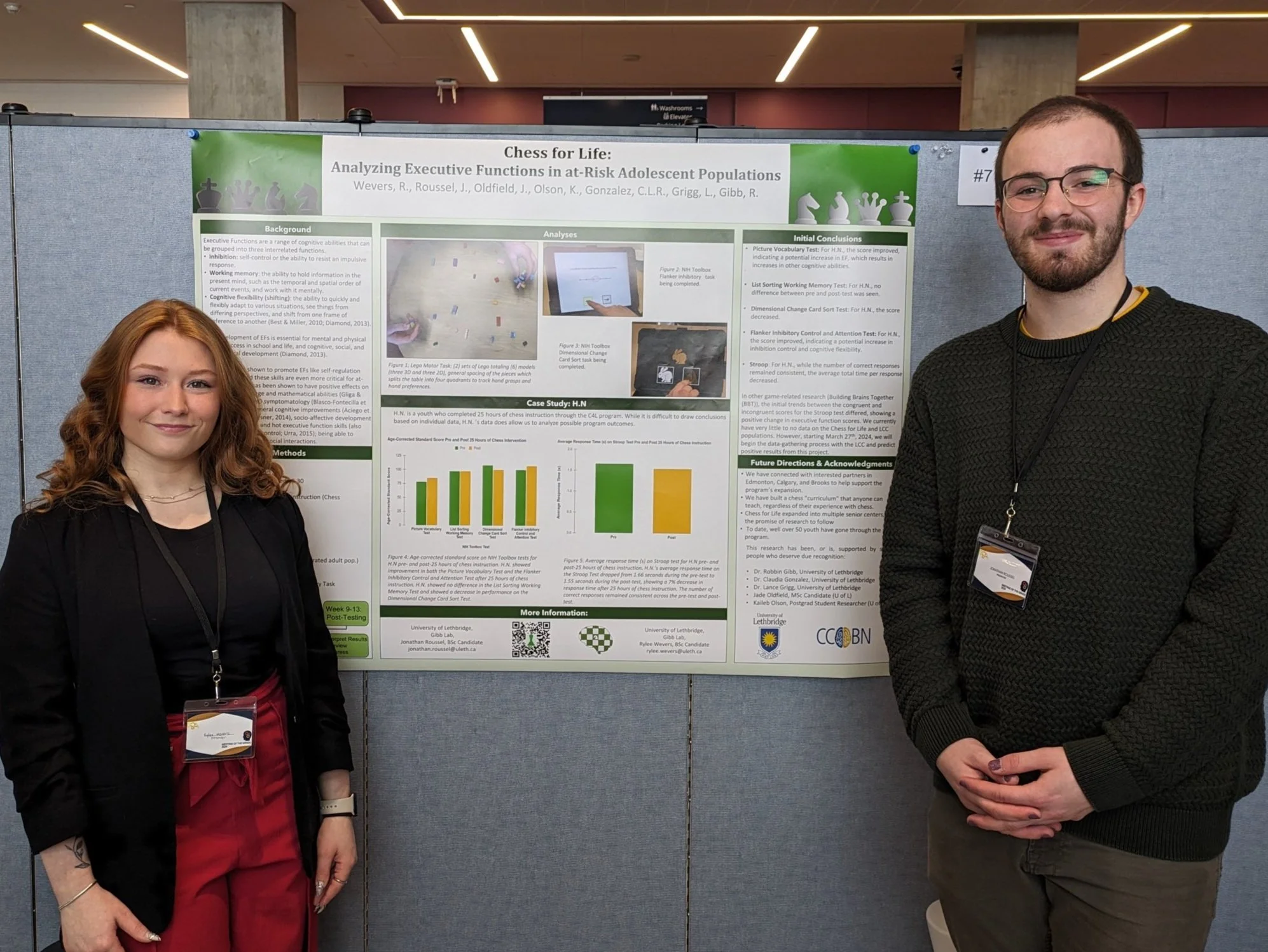The research
Chess for Life has experienced a great deal of success since its inception in 2016. Now, we are looking at the quantitative data to support the qualitative and anecdotal data from the past few years.
We propose that one of the reasons behind the success of Chess for Life is an improvement in executive functions. These are critical skills that allow us plan ahead, hold items in mind, inhibit responses as well as regulate our emotions. We are testing these skills before and after the 25 chess intervention to ascertain if these skills do improve.
While this research is still in process, below are some research papers that support the concept of chess being using to build various skills, in various age groups.
Building adolescent ef through a play-based curriculum
A scientific poster that introduces the concept behind the research on Chess for Life and Building Brains Together Adolescent program. See reference page for further chess related research.
Author: Jade Oldfield
Chess for life: analyZing ef in at-risk adolescent populations
A scientific poster that provides a case study on a Chess for Life participant and elaborates on testing and hypotheses.
Author: Rylee Weavers & Jonathan Roussel
Chess for life “one-pager”
A one-page overview of the background and overview of the Chess for Life research hypothesis and goals.
Author: Jade Oldfield


